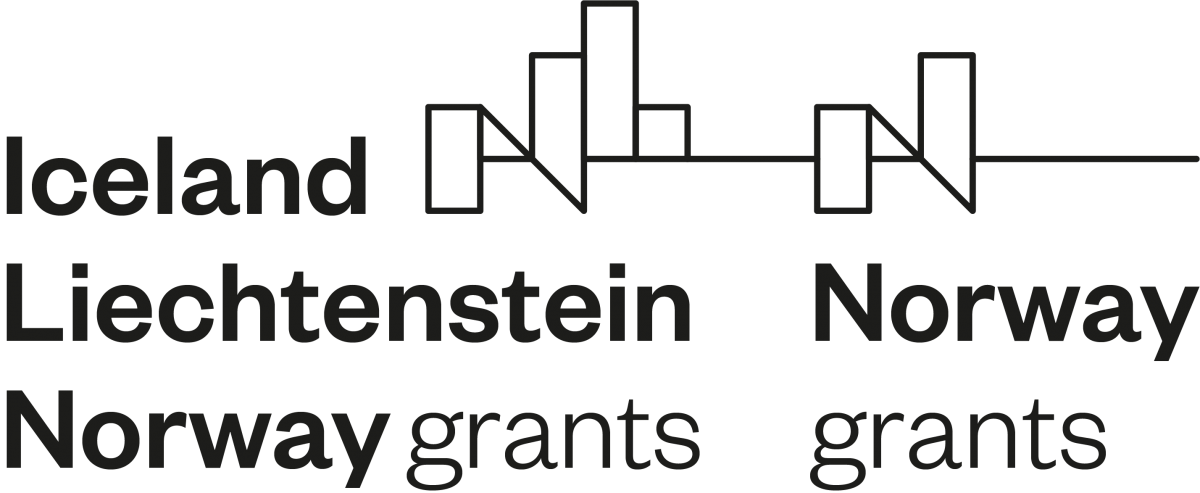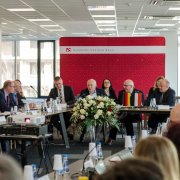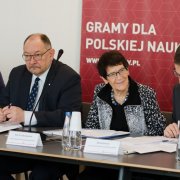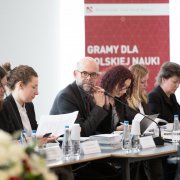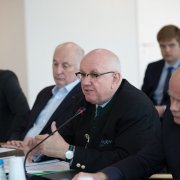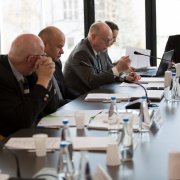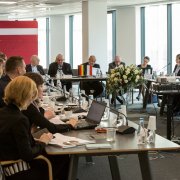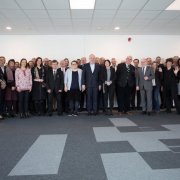We are proud to announce five new calls, including two (GRIEG and IdeaLab) funded from the EEA and Norway Grants. In addition, we have launched: MAESTRO 11, SONATA BIS 9 and UWERTURA 4. In total, 161 million PLN and nearly 42 million euro are up for grabs for researchers involved in basic research projects.
GRIEG and IdeaLab calls are funded under the third edition of EEA and Norway Grants 2014-2021 within the framework of the "Research" programme, in which the NCN serves as the coordinator in charge of basic research. With an allocated budget of more than 129 million euro, the programme is designed to support Polish science and intensify cooperation between research, business and society. 40% of available resources are slated for basic research projects within the framework of calls such as GRIEG and IdeaLab.
"Ever since its inception, the National Science Centre has striven to boost the quality and competitive edge of Polish research. As the operator of the programme in charge of basic research, we can do even more to internationalize it further and make research projects more effective", says Professor Zbigniew Błocki, NCN Director. "The new calls in our portfolio open up new opportunities for Polish researchers, e.g. to work within Polish-Norwegian research teams and take part in innovative workshops designed to support the elaboration of ground-breaking research ideas" Professor Błocki adds.
GRIEG call is open to joint Polish-Norwegian research projects in any discipline (as specified by NCN panels), with a special emphasis on polar research and social science. Projects must be conducted by Polish-Norwegian research teams including at least one Polish partner, who serves as the leader of the consortium, and one Norwegian partner. The role of principal investigator may be taken on by researchers employed by a Polish research institution, who hold at least a PhD degree. The Norwegian part of the research team must be headed by a research institution. The consortium may comprise research institutions, enterprises and NGOs and proposed projects may last 24 or 36 months.
The GRIEG call is financed under the Norway Grants, i.e. the resources of the Norwegian Funding Mechanism 2014-2021, and has an allocated budget of more than 37 million euro. The funding requested for the entire implementation period of the Polish-Norwegian project must fall within the 0.5-1.5 million euro bracket. The grant may go toward funding research team salaries and scholarships, purchasing equipment, materials and services, covering travel costs and conferences, as well as other project-related expenses.
"The original idea behind the GRIEG programme was to promote research-based knowledge, strengthen Polish-Norwegian research cooperation, boost the quality of publications, especially in the humanities, support the growth of young researchers, and shape a positive perception of research in society", says Professor Małgorzata Kossowska, Chairwoman of the NCN Council.
IdeaLab is a call for joint research projects carried out by research teams comprising at least one Polish partner, who serves as the leader of the consortium, and at least one partner from Norway, Iceland or Liechtenstein. The role of principal investigator may be taken on by researchers who hold at least a PhD degree and are employed by a Polish research organization. The consortium may comprise research institutions, public institutions, entrepreneurs and NGOs. The call will be held in accordance with the "sandpit" process conceived by the UK's Engineering and Physical Sciences Research Council and employed by the Research Council of Norway under the name of Idélab. The core component of the call is a workshop during which participants from various research institutes, NGOs and other public or private institutions are asked to tackle the challenges facing contemporary societies. The innovative workshop formula promotes the creation of ground-breaking, interdisciplinary and innovative research project ideas.
"The theme of the IdeaLab call has been laid out by the "Research" Programme Committee in cooperation with experts from the NCN Council. Entitled "Managing Threats", it is designed to address the current and future social challenges posed by complex social, economic and environmental processes, such as globalization, demographic change and migration, the lack of geopolitical stability, technological progress, climate change and the environment", explains Professor Kossowska.
The IdeaLab call is funded under the EEA scheme, i.e. from the resources of the EEA Mechanism 2014-2021, and has an allocated budget of nearly 4.5 million euro. The funding requested for the entire project implementation period must fall within the 0.5-1.5 million euro bracket. The grant may go toward funding research team salaries and scholarships, purchasing equipment, materials and services, covering travel costs and conferences, as well as other project-related expenses. The project may last 24 or 36 months.
As usual in June, we are also announcing the MAESTRO and SONATA BIS calls. The former is targeted at experienced researchers involved in pioneering, often interdisciplinary, research projects important for the development of science, which go well beyond the current state of knowledge. The role of principal investigator may be taken on by a person who holds at least a PhD degree, can demonstrate a minimum of 5 publications in renowned Polish or international academic press/ journals over the past 10 years, and has coordinated at least two research projects within the framework of national or international calls. The 11th edition of the MAESTRO call boasts a budget of 40 million PLN. The SONATA BIS call, on the other hand, is targeted at researchers who have earned their PhD degrees 5 to 12 years before the proposal submission year and aims to create a new research team. The researcher who submits the proposal is required to demonstrate 1-10 research publications over the last 10 years; the 1-3 most important need to be attached to the proposal. Importantly, apart from the principal investigator, the research team may not include any members with an academic title, title of professor, habilitation degree or equivalent degree or title, or researchers who have already collaborated with one another on a research project funded under a previous call. The ninth edition of SONATA BIS has a budget of 120 million PLN.
UWERTURA 4 aims to support researchers in their successful application for prestigious grants awarded by the European Research Council (ERC). Working in an international research team is an excellent opportunity to acquire valuable experience. Under the UWERTURA call, researchers who apply for fellowships in foreign research teams carrying out ERC grants must hold at least a PhD degree and demonstrate experience in managing their own research projects within the framework of a call or winning prestigious scholarships. Fellowships may last from 1 to 6 months. Within 24 months from the signing of the funding agreement, the researcher must apply as the principal investigator for an ERC grant to be carried out at a Polish host institution. This year's edition of the UWERTURA call has a budget of 1 million PLN.
Proposals are accepted via the ZSUN/OSF electronic submission system. The deadline for submission under the MAESTRO, SONATA BIS and UWERTURA calls is 17 September 2019, under the GRIEG call - 28 October, the results will be announced by March 2020. Proposals for the IDEALAB call may be submitted until 19 August, and the results will be announced in January 2020.
